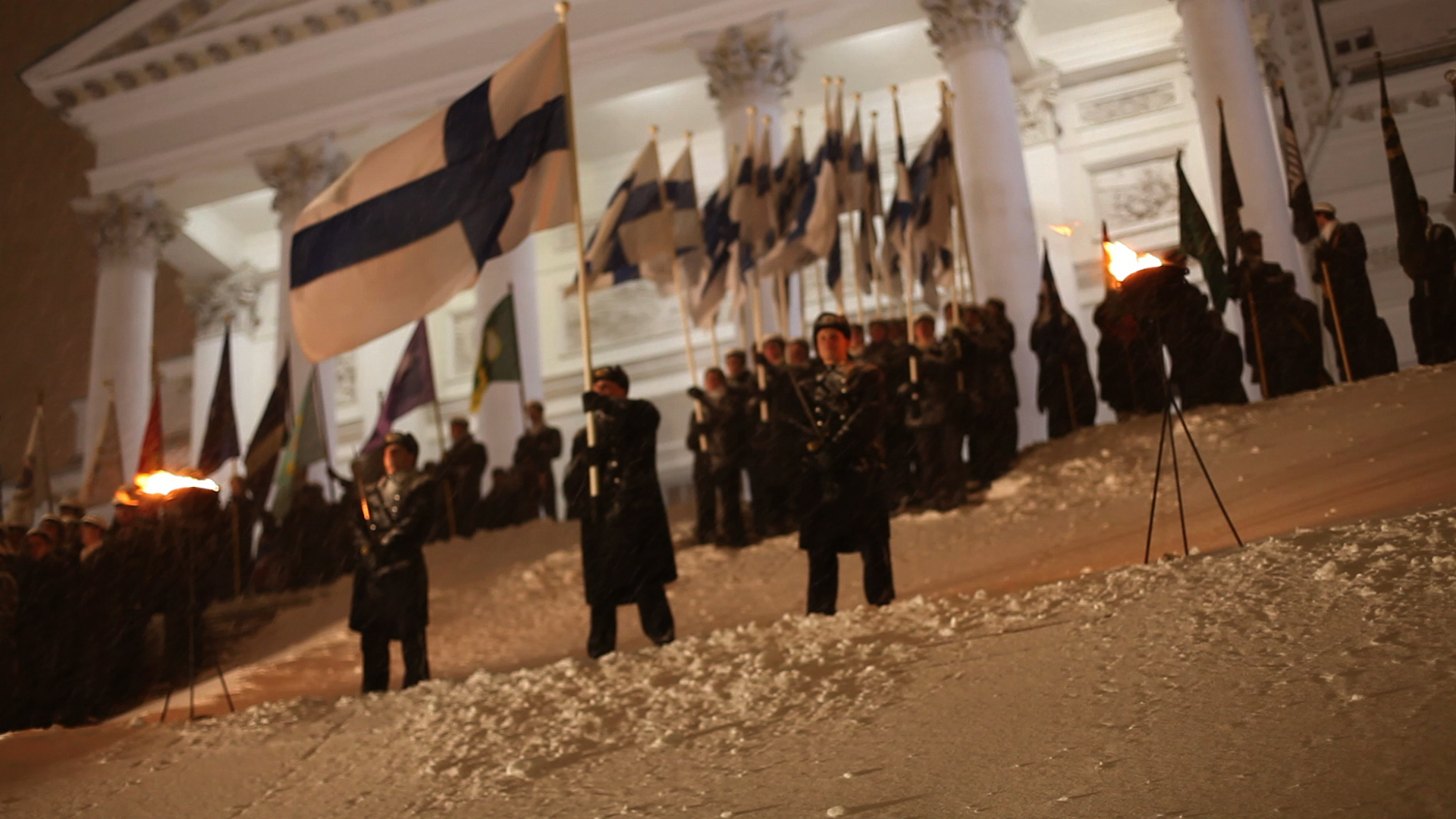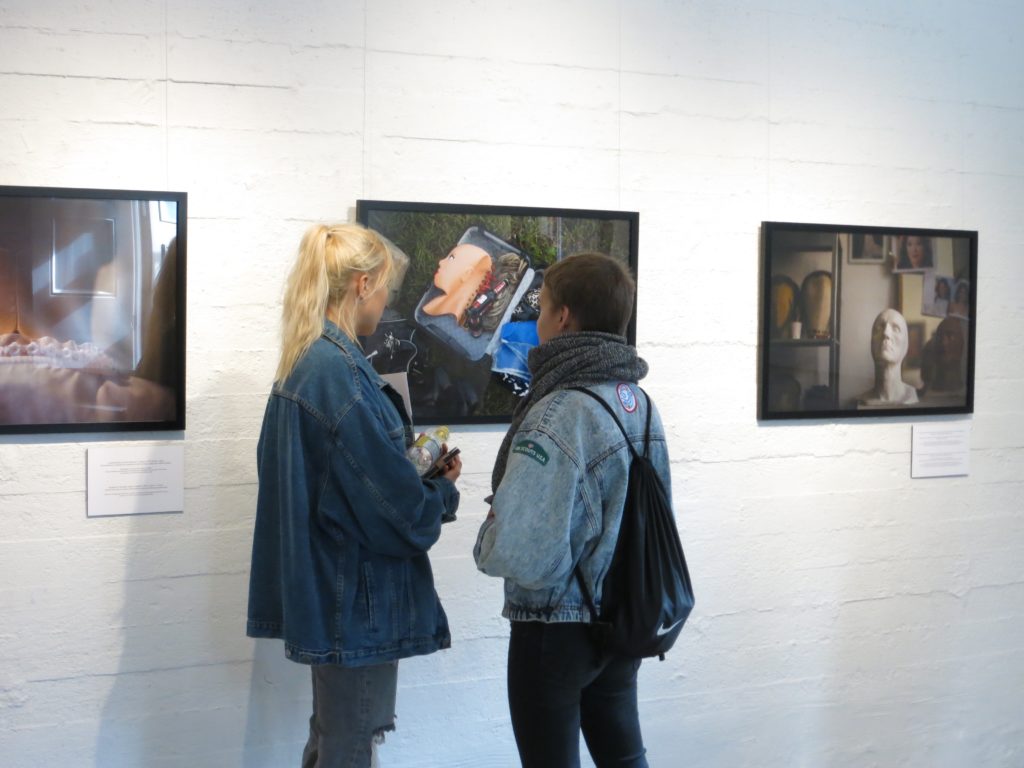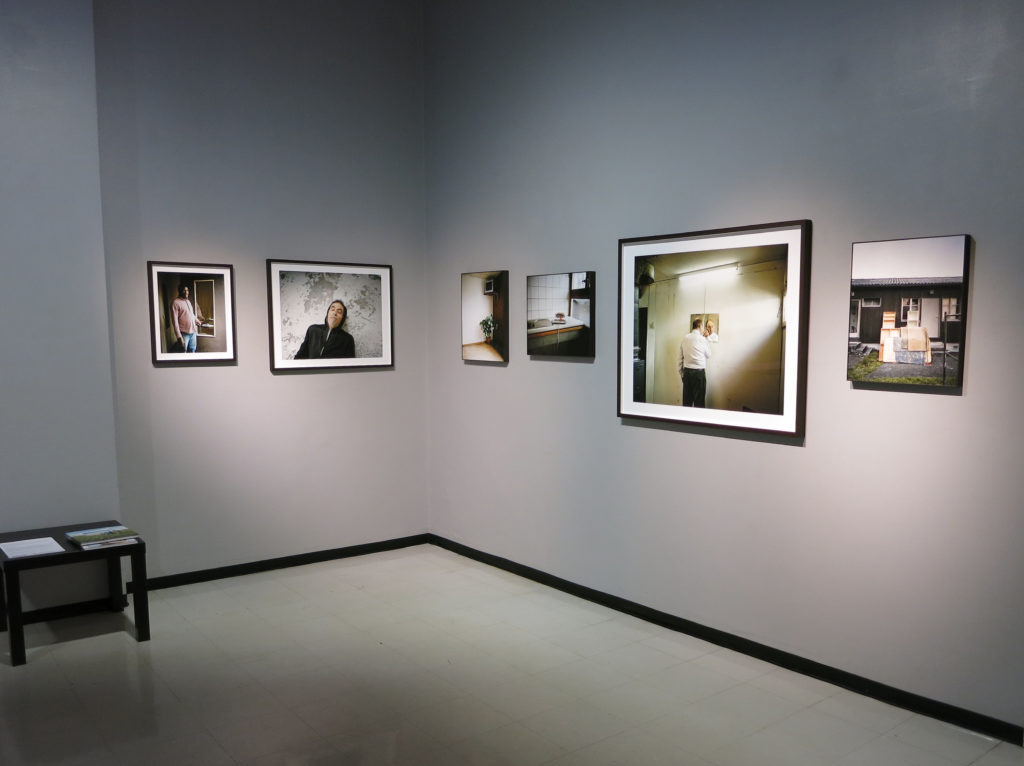Carl Sebastian Lindberg, Home and Country (Video) at Museum Centre Vapriikki until October 29.
Carl Sebastian Lindberg writes about his work:
“Home and Country relates the experiences of the artist’s aunt, author Ann-Mari Lindberg who lived in Finland as a child, during the Second World War. I wanted to portray the experiences of my aunt’s generation and the impact these experiences have had on her and her values because I believe that experiences of older generations are, in a way, embedded in each of us. The starting point of the work is micro-historical. I wanted to recount small events from the life of a child, and to relate them to more turbulent historical events such as war. For example, the outbreak of the war is presented through the story of Ann-Mari’s father’s purchase of gas masks for the entire family, and how her mother sewed snow camouflage suits for the children–the same kind of camouflage suits the soldiers wore at the front.
The alliance between Finland with Nazi Germany is touched upon when Ann-Mari speaks about how it felt to do the Nazi salute and march to the beat at The German School of Helsinki. Russian prisoners of war were made to work on farms, also on Ann-Mari’s father’s farm. By getting to know these prisoners Ann-Mari’s perception of Russians changed, and afterwards, it was difficult for her to see them merely as enemies.
I wanted to depict a fragmented micro-historical perspective and a narrative mode on film–a device that can help avoid the glorification of war. Apart from interviews and archival materials, the film reuses wartime newsreels by the Finnish Defence Forces. The newsreels are blatantly propagandist and racist, comparing Russians to rats and lice.”
The film is based on interviews with the author Ann-Mari Lindberg and contains several never before published photographs from both the school archive and family archives that have survived.



